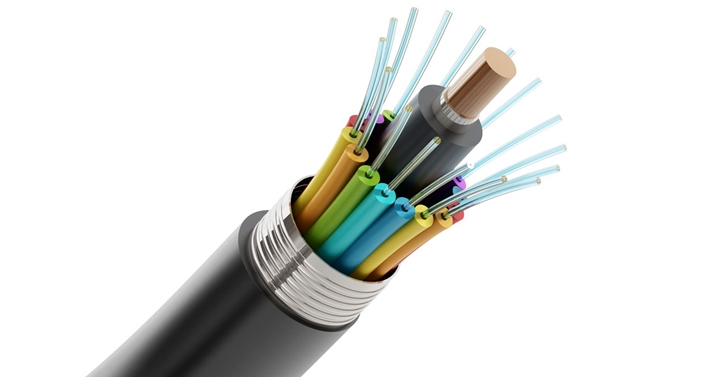Data centers are the backbone of any business or non-business organization, as they store all the important information from different spheres. An issue in the data center can put a halt on the working and functionality of the organization. Therefore, paying attention to the management and maintenance of the data center is crucial to keep the organization flourishing.
The problem here is that the data centers are full of cables of different lengths, widths and shapes. Confusing one cable with the other is inevitable, which can lead to irreparable loss. The technology has made great progress and has found the solution to this issue in color-coded cables to make the installation, management and maintenance of fiber and other cables in the data center quite easier.
Keep scrolling down this article to explore a comprehensive guide about fiber color coding in data centers.
Top 3 Steps to Identify Fiber Color Code
The fiber or other cables usually appear similar. They might be different in width and size; however, a mere look of the cable cannot help in distinguishing its type. On the other hand, differentiating one color from the other is quite easy, even from afar. So, the fiber color-coded cables are used in data centers and other settings to highlight the use of various types.
Identifying the fiber cable color code is critical to ensure their proper usage and maintenance, which be easily done by following these steps.
1. Outer Jacket Color Code
The outer jacket of the fiber optic cables is usually color code to differentiate them from each other. These color codes are assigned according to the type of fiber optics. The outer jacket is colored, which makes it easier even for the layman to differentiate one from the other.
Here is the description of the color code of the fiber cable outer jackets according to the fiber types. These fiber optics with the outer jacket of these colors are used for non-military applications.
- OM1 Multimode: orange
- OM2 Multimode: orange
- OM3 Multimode: aqua or violet
- OM4 Multimode: orange
- Single Mode: yellow
2. Inner Cable Color Code
The fiber optic cables with multi fibers are considered one of the most complex types as every individual inner cable in the main jacket, buffer or tube is color-coded according to the set criteria. The inner cable color code follows the pattern of the fiber positions. The fiber positions from 1 to 12 are assigned a color, and the fiber positions from 13 to 24 use the same color with a black tracer to show the difference
Here is the description of the inner cable color coding in the case of the fiber optic cables.
- 1: blue
- 2: orange
- 3: green
- 4: brown
- 5: slate
- 6: white
- 7: red
- 8: black
- 9: yellow
- 10: violet
- 11: rose
- 12: aqua
3. Connector Color Code
The last category included in the color coding of the fiber optic cables is the color coding of the connector. The fiber optics utilize a variety of connector types, which are also color-coded to boost the ease and understanding of the users. Here are some of the common color codes assigned to various connector types of fiber optic cables.
- OM1: beige or grey
- OM2: black
- OM3: aqua
- OM4: aqua
- Single Mode: blue
Read also: A Comparison of Horizontal Cabling and Vertical Cabling
Top 3 Uses of Fiber Color Coding in Data Center
Fiber color coding in the data centers is not introduced and implemented without proper thought. It is introduced to lessen the burden as well as the possibility of mistakes in handling the fiber optic cables. Besides this, here are the top uses of fiber color coding in the data centers.
1. To Distinguish Fiber Grades
The fiber optic cables are available in a vast range of categories like OM1, OM2, OM3, OM4 and hybrid cables. Color coding provides the simplest solution of distinguishing the fiber grades and saving the network from frequent maintenance issues due to the use of the wrong cable.
2. To Identify Fiber Patch Cords
Using the right connector with the right fiber optic cable type is nothing less than a hassle, with a high probability of misuse. The fiber color coding is used to identify the right fiber patch cords along with the suitable fiber optic cable.
3. To Separate Different Ports
One of the most significant uses of fiber color coding in the data centers is separating different ports. Apart from distinguishing the fiber cables and connectors, separating the ports is also crucial to enjoy sound and hassle-free connectivity.
Read also : fiber Optics Problems and Solutions: Easy Guide
4. To Differentiate Connector Boots
Lastly, the most critical use of the fiber color coding in the data center is differentiating the connector boots. These are necessary to carry out the regular maintenance and up-gradation matters. However, if you are unable to track the color-coding rightly, you can hire fiber optic cable Dubai based companies and let the expert stake care of the installation and maintenance process without any mistake.
Take care of color-coding to boost your benefits!
Color coding is introduced in the fiber optic cables to limit the struggle of the general user in identifying a particular cable. However, fiber optic cables are available in a vast range, based on various technical details, which makes it difficult for the users. However, you can easily contact the experts and get them on board to handle all the complicated matters while you enjoy perfect connectivity and smooth maintenance.

